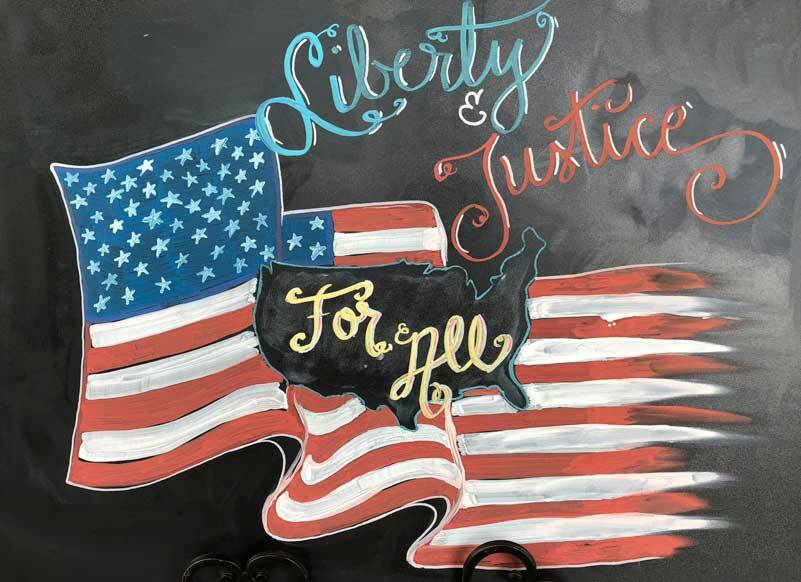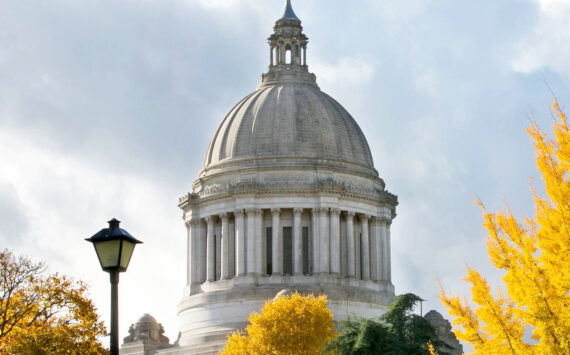By Morf Morford
Tacoma Daily Index
The law, in its majestic equality, forbids rich and poor alike to sleep under bridges, to beg in the streets, and to steal their bread. – Anatole France
Laws and public policies might seem to be, or might be intended to have relatively equal impacts and relatively fair final results.
But we all know how rare this is.
All laws and policies, from zoning to speed limits or drug laws apply to all, but that doesn’t mean that they get applied to all.
I used to urge my college level students, when looking at almost any issue, to consider what is intended – what is the purpose of any given rule or law. And, secondly, what is accomplished by any given rule or law?
Bans or prohibitions in every area from “public camping” to abortions have a clear intent – to eliminate that particular action or activity.
But, for it to make any sense or have any real impact, the second question must be considered. What is actually accomplished by any given law or ruling?
Bans or prohibitions of “public camping” for example, accomplish little if anything. Those bans have essentially no relevance to the issue of homelessness. They don’t create homes, ensure safety or do anything that those who have been evicted or displaced might actually need. In most cases, they make their situation worse. Usually far worse.
But these laws, on paper at least, are “equal”.
I, and virtually anyone reading these pages, will have no problem following any laws or policies regarding “public camping”. Not because we affirm or even agree with those laws, but purely because those laws, like many others, do not apply to our situation.
Laws, all too often, are written by one category of people explicitly designed to apply exclusively to another category of people.
What if, just as a hypothetical example, laws and guidelines regarding homelessness were written, or at least proposed by, and enforced by those who have or currently do experience homelessness?
Or what if abortion laws were written – and enforced – exclusively by those who were impacted by those very laws? How would those laws look if they were written by women of child-bearing ages?
What would fairness or justice look like?
Non-compete clauses are similar.
They seem fair and reasonable until you see how they are often applied.
Noncompete clauses are employment contract provisions that were originally intended to prevent high-level executives from taking trade secrets elsewhere. Fast food franchisers and retail giants took the concept and reoriented it, and now many of them force low-wage employees to sign away their right to quit and find a better job elsewhere.
It’s an abusive labor practice that keeps wages low and stifles competition.
The NDA
A non-disclosure agreement (NDA) is an agreement in contract law that certain information will remain confidential. An NDA binds a person who has signed it and prevents them from discussing any information included in the contract with any non-authorized party.
NDAs are commonly used to protect trade secrets, client information, and other sensitive or valuable information. In a sane and fair world, that would be the scope of any NDA. As with the laws on “public camping” (or sleeping under bridges) the application is often far from the intent.
More than one prominent business person has had employees sign an NDA that restricted them from going public about events far from any business or marketing context; these included corruption, sexual assaults and a variety of illegal/unethical activities.
We even had a prominent politician who promised to “run the government like a business”. Which he did. He ran his administration as he ran his business – with every employee signing an NDA that, to his mind at least, kept his criminal and corrupt activity under wraps.
To say that this use of NDAs violates the spirit of the law would be the ultimate understatement.
Justice is blind
The concept that all people are equal in the eyes of the law is firmly rooted in the history of the United States. In practice our system presumes that everyone must be treated fairly and uniformly under the law and that their treatment does not depend on their politics or position in life.
As a reminder, we often see the words “Equal Justice Under Law” inscribed on courthouses across America.
Justice is not perfect in our country, but it is intended to be blind, responding to the facts and evidence, not the rank, class, race or identity of the accused.
This, of course has not always been the case.
The Dred Scott case (1857) established that a slave or the descendant of a slave could not be an American citizen. In other words, that was literally the assumption and the law of the land as applied to hiring, voting rights and a thousand other aspects of life on a daily basis for those who, if justice prevailed, would have all of those rights guaranteed and protected.
The Dred Scott case is frequently cited by scholars as the Supreme Court’s worst decision, but it reflected an interpretation, and application, still held by many.
Justice is indeed blind
Many, from minors to Natives to gender non-conformers, among many others, struggle to be seen and recognized by the law in every area from hiring to voting and marriage.
All may be equal under the eyes of the law, but not all have equal representation or recognition (or protection) under our laws.
Blind justice, in the good sense, might be aspirational, but for far too many, blindness, to the point of ignorance and neglect, intentional or not, is all too real.
The limits of the law
Every law has its domain and limitations.
And its implied, if not overt purpose.
Our drug laws are a perfect example.
Here’s a simple question; do most people who use or don’t use make their decision based on whether any given drug is “legal” or not?
I think we all know that people use, or don’t use drugs based on personal choice, or the influence of their friends or family far more than any legal status.
Laws vs Justice
I look at most laws as legally inscribed manners.
For us to work and live together, we need some basic – and enforced – standards of behavior.
For example, speed limits, in most cases, facilitate our travel far more than they impede it.
These rules should make our lives smoother and yes, even more free.
They certainly should not embody and encode the strand of control and obsession that H. L. Mencken identified in Americans as “the haunting fear that someone, somewhere, may be happy”.
The more corrupt the state, the more numerous the laws. – Tacitus, The Annals of Imperial Rome
Like the Dred Scott ruling, and, I would argue, most of our drug laws, we have authorized and agreed upon a multitude of foolish and destructive laws.
Laws are not so different from words.
In fact it would be easy to make a convincing argument that our laws are, for better or worse, all too often our fears and opinions put into legal form.
If fifty million people say a foolish thing, it is still a foolish thing. – Anatole France
And a foolish law, believed in and enforced by a million people is still a foolish law.






